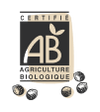Seeds: quality in the garden
Seeds: quality in the garden
In most cases, there is nothing to distinguish a healthy seed, which will germinate properly, from a dead one with the naked eye. As for telling the difference between seeds belonging to two distinct varieties of celery, that's downright challenging! It's therefore very difficult to judge the quality of seeds found in stores. This is why numerous quality controls are carried out.
According to regulations, all commercially available seeds must be "healthy, fair, and marketable" in order to best meet the needs of users, both farmers and gardeners. But in practice, things are still quite complex. Let's try to shed some light on the situation...
Official recognition
In order to be marketed, varieties of the "major" vegetable species must be registered in an official European catalogue which brings together the catalogues of the different countries.
A variety must have a name, a precise description, and a well-preserved sample of seeds or plant material. Seeds are tested and sold as "standard seeds" with the label "EC rules and standards."
The return of old varieties
It is common for a species to have several dozen or even several hundred varieties listed in the catalog. However, old varieties that have fallen into oblivion and become unobtainable are no longer listed in this catalog. This is the case for many tomato varieties, for example.
However, gardeners, often curious and passionate, sometimes want to bring old varieties that have become unobtainable back into their vegetable gardens. This is why the official catalogue of species and varieties was updated at the end of 1997 with the opening of an annex register which lists well-known old varieties that have been brought back into cultivation by companies (which are then responsible for preserving them).
Seeds of varieties registered in this register can be sold in France, with the same quality standards as other varieties registered in the official catalogue. They must therefore bear the words "standard seeds" on the packaging, but not the words "EC rules and standards", since this is, for the moment, a French provision.
Outside of catalogs...
Some lesser-known vegetable species, such as orach, parsnips, and New Zealand spinach, are not covered by these European regulations and therefore do not have an official catalog. However, their quality is often covered by French national standards.
SOC and seed quality
For the "major" vegetable species, the seeds sold are controlled by the SOC, the Official Control and Certification Service. They are therefore sold as "standard seeds" with the mention "EC rules and standards." This mention, on the label or packaging, guarantees compliance with European standards regarding germination and the absence of seeds from other species.
Average lifespan of vegetable seeds stored in good conditions
Source: Semencemag.fr






